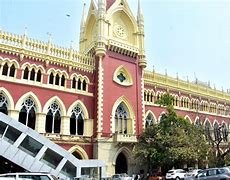On Saturday (January 27), the Supreme Court (SC) suspended all proceedings in the Calcutta High Court in a case involving allegations of misconduct in the admission of MBBS candidates to West Bengal’s state-run medical institutions and hospitals.
A five-judge bench of the Supreme Court led by Chief Justice of India (CJI) D Y Chandrachud held a special sitting to address the extraordinary situation in which two separate benches of the High Court issued contradictory orders, and one judge, Justice Abhijit Gangopadhyay, accused another judge, Justice Soumen Sen, of serious misconduct, accusing him of acting at the behest of political parties.
Saturday hearings are uncommon in the Supreme Court, and this case is particularly unique because it involves a Single Judge Bench refusing to accept the legality of decisions issued by a bigger Bench of the same court, therefore violating a number of previous SC judgements.
Contradicting orders

On January 24, a Single Judge Bench led by Justice Gangopadhyay issued two rulings in the matter involving alleged irregularities in MBBS admissions in West Bengal. In the initial portion of the day, he directed the CBI to launch an investigation for the ‘huge picture of corruption’ in the case.
He drew attention to the state policies’ inability to arrest Shiekh Shahjahan following the attack of Enforcement Directorate (ED) agents on January 5 during a raid at his Sandeshkhali property, which required the assistance of the CBI. Although the petitioner did not request a CBI probe in their appeal, he admitted in the ruling that a comprehensive investigation is necessary. He instructed the Registrar General to get in touch with the CBI so that an officer could show up later that day to pick up the documents, and he also told the CBI to receive all of the documents that the Advocate General of the Calcutta High Court had presented.
The Division Bench, which included Justices Soumen Sen and Uday Kumar, was immediately contacted by the Advocate General (AG) to request a stay to the CBI investigation, and the bench granted the request. The bench held that “there is no requirement to handover the documents to the CBI Officer who was directed to be present at 2:30 pm today.”
The bench decided to rely on the AG’s representations after acknowledging that Justice Gangopadhyay’s ruling from earlier that morning “is not available in the server.” The order was then postponed for two weeks. By 4:30 p.m., they instructed the AG to submit a stay petition and an appeal against the order. That afternoon, a CBI official appeared before Justice Gangopadhyay in defiance of the Division Bench’s orders.
Orders issued the next day
Next day, The Division Bench declared that Justice Gangopadhyay’s second decision implementing the document handover to the CBI was null and void ab initio, notwithstanding the fact that both the appeal and the stay motion were submitted on time. Additionally, Justices Soumen and Kumar ruled that there is no evidence of a state police neglect of duty and that the Sandeshkhali event “cannot have any relevance in the instant case for directing CBI to take over investigation.”
Justice Gangopadhyay accusing Justice Sen

Justice Gangopadhyay released an order that evening criticizing the Division Bench’s conclusions and making serious accusations of misconduct against Justice Sen. Gangopadhyay stated that Sen had summoned Justice Amrita Sinha, a different High Court judge, to his chambers lately and informed her that Trinamool Congress MP Abhishek Banerjee’s political destiny should not be disrupted by court rulings. Sen allegedly stated that the two writ cases involving Banerjee that are now pending before Sinha’s court are to be dropped and that live-streaming would stop in her court.
The order claimed that Justice Sinha reported this discussion to the Chief Justice of the Calcutta High Court, who then notified the Chief Justice of India. Following this, a bench of five justices of the Supreme Court, led by Chief Justice DY Chandrachud, took up the case and held a special hearing on Saturday.
Justice Gangopadhyay stated “What Justice Sen has done today is to advance the cause of his personal interest to save some political party in power in this State. Therefore, his actions clearly tantamount to misconduct.” Despite the well-established law of precedent, which requires a Single Bench Judge to follow the orders of a larger bench, Justice Gangopadhyay said that he did not recognize the validity of the Division Bench’s stay order and directed the CBI to conclude its investigation and submit a report within two months.









